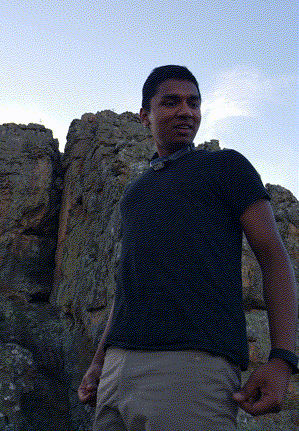I need something that can be scripted on开发者_如何学运维 windows 7. This image will be used in banners.
Simon P Stevens' answer almost got me there:
ffmpeg -f image2 -i image%d.jpg video.avi
ffmpeg -i video.avi -pix_fmt rgb24 -loop_output 0 out.gif
Let's see if we can neaten this up.
Going via an avi is unnecessary. A -pix_fmt of rgb24 is invalid, and the -loop_output option prevents looping, which I don't want. We get:
ffmpeg -f image2 -i image%d.jpg out.gif
My input pictures are labeled with a zero-padded 3-digit number and I have 30 of them (image_001.jpg, image_002.jpg, ...), so I need to fix the format specifier
ffmpeg -f image2 -i image_%003d.jpg out.gif
My input pictures are from my phone camera, they are way too big! I need to scale them down.
ffmpeg -f image2 -i image_%003d.jpg -vf scale=531x299 out.gif
I also need to rotate them 90 degrees clockwise
ffmpeg -f image2 -i image_%003d.jpg -vf scale=531x299,transpose=1 out.gif
This gif will play with zero delay between frames, which is probably not what we want. Specify the framerate of the input images
ffmpeg -f image2 -framerate 9 -i image_%003d.jpg -vf scale=531x299,transpose=1 out.gif
The image is just a tad too big, so I'll crop out 100 pixels of sky. The transpose makes this tricky, I use the post-rotated x and y values:
ffmpeg -f image2 -framerate 9 -i image_%003d.jpg -vf scale=531x299,transpose=1,crop=299,431,0,100 out.gif
The final result - I get to share my mate's awesome facial expression with the world:

You can do this with ffmpeg
First convert the images to a video:
ffmpeg -f image2 -i image%d.jpg video.avi
(This will convert the images from the current directory (named image1.jpg, image2.jpg...) to a video file named video.avi.)
Then convert the avi to a gif:
ffmpeg -i video.avi -pix_fmt rgb24 -loop_output 0 out.gif
You can get windows binaries for ffmpeg here.
You can also do a similar thing with mplayer. See Encoding from multiple input image files.
I think the command line would be something like:
mplayer mf://*.jpg -mf w=800:h=600:type=jpg -vf scale=160:120 -vo gif89a:fps=3:output=out.gif
(Where 800 & 600 are your source width and height and 160 & 120 are the target width and height.out.gif is your target file name)
I've just tested both of these and they both work fine. However I got much better results from mplayer as I was able to specify the resolution and framerate. Your milage may vary and I'm sure you could find more options for ffmpeg if you looked.
With ImageMagick:
convert *.png a.gif
The ffmpeg to .avi and .avi to .gif worked, but the only thing to note is that your images must be named in perfect increasing numeric order to work, with no gaps. I cooked up a quick python script to rename all of my images accordingly so that this ffmpeg recipe would work:
import os
files = [ f for f in os.listdir('.') if os.path.isfile(os.path.join('.',f)) and f.endswith('.jpg') ]
for i, file in enumerate(sorted(files)):
os.rename(file, 'image%03d.jpg' % i)
And then I stumbled upon a much simpler approach than ffmpeg for doing the conversion, which is simply using ImageMagick's command line convert tool like this
convert image%03d.jpg[0-198] animated_gif.gif
Doesn't get much simpler than that folks.
Gist here: https://gist.github.com/3289840
Based on the answers of Simon P Stevens and dwurf I came up with this simplified solution:
ffmpeg -f image2 -framerate 1 -i image%d.jpg video.gif
This results in a rate of 1 second per image. Adjust the framerate value according to your needs.
I'd just like to add to dwurf's answer, that this will generate a gif with the standard 256-colors palette, which does not look very visually pleasing.
I've found two blog-posts and adapted them to my needs, in order to improve the visual quality by using a custom palette for your animation:
Generate the color palette:
ffmpeg -f image2 -i image%d.jpg -vf scale=900:-1:sws_dither=ed,palettegen palette.png
Convert images into a regular video with the desired framerate, because the third command only worked with a single input video and not a bunch of images
ffmpeg -f image2 -framerate 1.2 -i image%d.jpg video.flv
Now convert the generated video with the generated palette into a more beautiful gif:
ffmpeg -i video.flv -i palette.png -filter_complex "fps=1.2,scale=900:-1:flags=lanczos[x];[x][1:v]paletteuse" video.gif




![Interactive visualization of a graph in python [closed]](https://www.devze.com/res/2023/04-10/09/92d32fe8c0d22fb96bd6f6e8b7d1f457.gif)



 加载中,请稍侯......
加载中,请稍侯......
精彩评论